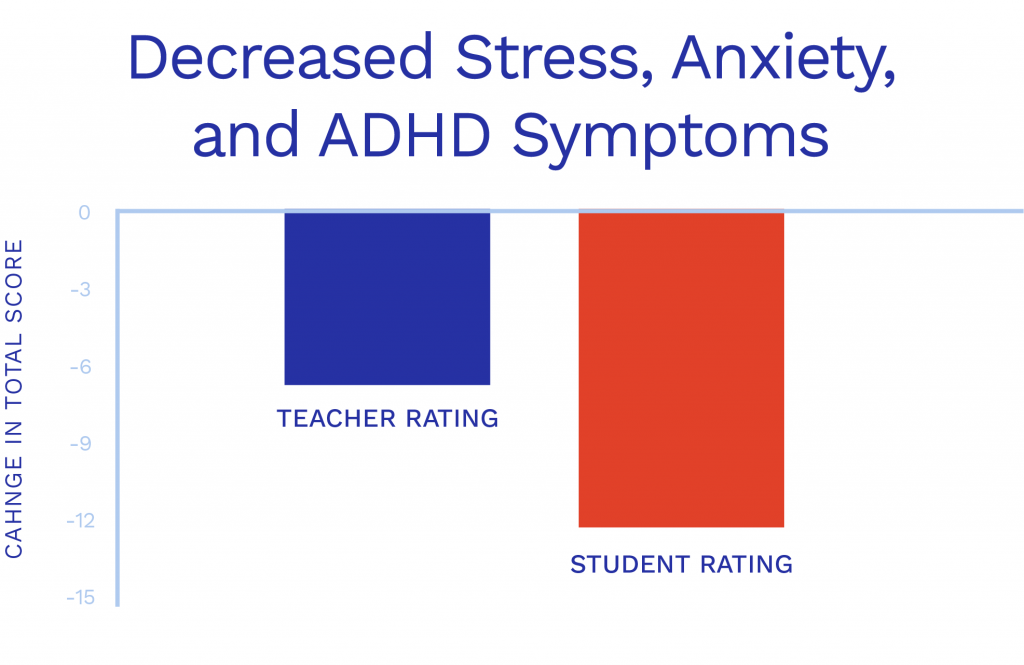Can Meditation Help ADHD?
How Transcendental Meditation Helps
Growing concern about the side effects and health risks associated with ADHD medications—including mood swings, stunted growth, insomnia and heart problems—has fueled a search for safe alternatives.
Recent studies published in Current Issues in Education, Mind & Brain, and The Journal of Psychiatry found that students with ADHD who practice the Transcendental Meditation technique showed significant reduction of symptoms within three to six months. Other relevant benefits include:
- Increased brain processing
- Heightened EEG coherence
- Reduced stress and anxiety
- Increased verbal fluency
The TM technique is practiced for 15-20 minutes twice a day while sitting comfortably with eyes closed. It can be quickly and easily learned by anyone—even young children with ADHD. Because this meditation technique is effortless and involves no concentration, controlled focus, or sustained attentiveness, there is no obstacle for people with challenged attention spans.
ADHD and the Brain
Scientists attribute ADHD to a lag in the brain’s natural development. Cognitive learning expert Sarina Grosswald, EdD, led pioneering research on ADHD and meditation. Dr. Grosswald explained that Transcendental Meditation works very differently from how the drugs work.
“Meditation is not a quick fix. But, over time, TM allows the brain to create the neural connections that correct the underlying problem. The drug is an immediate fix, but when it wears off, the problem remains—the lack of brain integration.”
Sarina Grosswald, EdD
The TM technique is a cost-effective approach that can be a lifelong tool for managing ADHD and its many challenges.
Read more about this topic: Alleviating ADHD in Schools

How Transcendental Meditation Helps
Growing concern about the side effects and health risks associated with ADHD medications—including mood swings, stunted growth, insomnia and heart problems—has fueled a search for safe alternatives.
Recent studies published in Current Issues in Education, Mind & Brain, and The Journal of Psychiatry found that students with ADHD who practice the Transcendental Meditation technique showed significant reduction of symptoms within three to six months. Other relevant benefits include:
- Increased brain processing
- Heightened EEG coherence
- Reduced stress and anxiety
- Increased verbal fluency
The TM technique is practiced for 15-20 minutes twice a day while sitting comfortably with eyes closed. It can be quickly and easily learned by anyone—even young children with ADHD. Because this meditation technique is effortless and involves no concentration, controlled focus, or sustained attentiveness, there is no obstacle for people with challenged attention spans.
ADHD and the Brain
Scientists attribute ADHD to a lag in the brain’s natural development. Cognitive learning expert Sarina Grosswald, EdD, led pioneering research on ADHD and meditation. Dr. Grosswald explained that Transcendental Meditation works very differently from how the drugs work.
“Meditation is not a quick fix. But, over time, TM allows the brain to create the neural connections that correct the underlying problem. The drug is an immediate fix, but when it wears off, the problem remains—the lack of brain integration.”
Sarina Grosswald, EdD
The TM technique is a cost-effective approach that can be a lifelong tool for managing ADHD and its many challenges.
Read more about this topic: Alleviating ADHD in Schools
